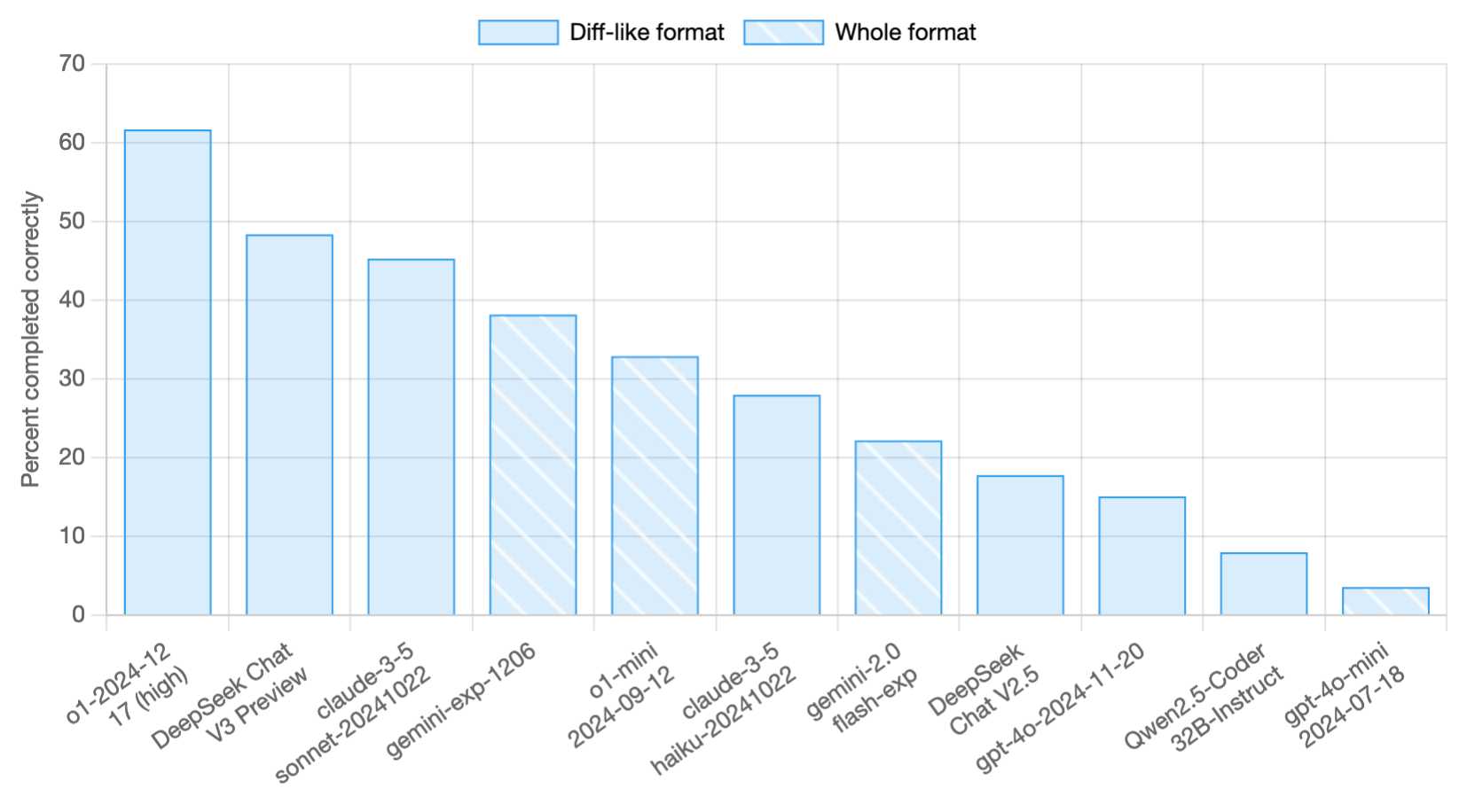pho[to]rum
Vous n'êtes pas identifié.
#1 2025-02-01 12:46:02
- Selina0137
- New member
- Lieu: Austria, Hehenberg
- Date d'inscription: 2025-02-01
- Messages: 4
- Site web
What is China's DeepSeek and why is it Flipping out the AI World?
What Is China's DeepSeek and Why Is It Going nuts the AI World?
(Bloomberg)-- DeepSeek, a Chinese artificial-intelligence start-up that's simply over a year old, has stirred awe and consternation in Silicon Valley after showing AI models that offer comparable efficiency to the world's best chatbots at apparently a fraction of their development cost.
DeepSeek's introduction might use a counterpoint to the prevalent belief that the future of AI will require ever-increasing amounts of computing power and energy.
Global innovation stocks toppled on Jan. 27 as buzz around DeepSeek's development grew out of control and investors started to absorb the ramifications for its US-based competitors and AI hardware providers such as Nvidia Corp.
. What precisely is DeepSeek?
DeepSeek was established in 2023 by Liang Wenfeng, the chief of AI-driven quant hedge fund High-Flyer. The company develops AI models that are open-source, indicating the designer neighborhood at large can check and enhance the software. Its mobile app rose to the top of the iPhone download charts in the US after its release in early January.
The app differentiates itself from other chatbots like OpenAI's ChatGPT by articulating its reasoning before providing a reaction to a timely. The company claims its R1 release uses efficiency on par with the latest version of ChatGPT. It is using licenses for people interested in establishing chatbots utilizing the innovation to develop on it, at a rate well listed below what OpenAI charges for similar gain access to.
Follow The Big Take everyday podcast anywhere you listen.
How does DeepSeek R1 compare to OpenAI or Meta AI?
DeepSeek states R1's performance approaches or improves on that of competing designs in numerous leading standards such as AIME 2024 for mathematical tasks, MMLU for basic knowledge and AlpacaEval 2.0 for question-and-answer performance. It also ranks amongst the leading performers on a UC Berkeley-affiliated leaderboard called Chatbot Arena.
Though not completely detailed by the company, the expense of training and establishing DeepSeek's models seems just a fraction of what's needed for OpenAI or Meta Platforms Inc.'s best items. The higher effectiveness of the model takes into question the need for vast expenditures of capital to get the newest and most powerful AI accelerators from the similarity Nvidia. It likewise concentrates on US export curbs of such advanced semiconductors to China - which were meant to prevent a development of the sort that DeepSeek appears to represent.
When did DeepSeek trigger international interest?
The AI developer has been closely seen considering that the release of its earliest design in 2023. Then in November, it offered the world a look of its DeepSeek R1 reasoning design, designed to imitate human thinking. That design underpins its chatbot app, which took off in appeal as a more affordable OpenAI option, with investor Marc Andreessen calling it "AI's Sputnik minute."
The DeepSeek mobile app was downloaded 1.6 million times by Jan. 25 and ranked No. 1 in iPhone app stores in Australia, Canada, China, Singapore, the US and the UK, according to data from market tracker App Figures.
What did we gain from the huge stock market reaction?
For much of the previous two-plus years considering that ChatGPT kicked off the global AI frenzy, financiers have wagered that improvements in AI will need ever advanced chips from the likes of Nvidia.
The DeepSeek development suggests AI models are emerging that can achieve a similar performance utilizing less advanced chips for a smaller expense.
Investors unloaded Nvidia stock in reaction, sending the shares down 17% on Jan. 27 and eliminating $589 billion of value from the world's biggest business - a stock exchange record. Semiconductor device maker ASML Holding NV and other business that likewise gained from booming demand for innovative AI hardware also toppled.
DeepSeek's success casts doubt on the huge costs by companies like Meta and Microsoft Corp. - each of which has dedicated to capex of $65 billion or more this year, mainly on AI facilities.
Shares in Meta and Microsoft likewise opened lower, though by smaller sized margins than Nvidia, with investors weighing the potential for substantial cost savings on the tech giants' AI financial investments. Meta even recuperated later in the session to close greater. Chinese names connected to DeepSeek, such as Iflytek Co., likewise climbed up.
Some market watchers recommended the industry overall might take advantage of DeepSeek's development if it presses OpenAI and other US providers to cut their prices, stimulating faster adoption of AI.
How could DeepSeek affect the global tactical competitors over AI?
AI is the key frontier in the US-China contest for tech supremacy. Washington has actually banned the export to China of devices such as high-end graphics processing systems in a quote to stall the nation's advances.
DeepSeek's progress recommends Chinese AI engineers have actually worked their method around those limitations, concentrating on higher effectiveness with minimal resources. Still, it remains uncertain just how much advanced AI-training hardware DeepSeek has had access to.
Already, developers all over the world are try out DeepSeek's software application and looking to build tools with it. This might help US business improve the efficiency of their AI designs and quicken the adoption of innovative AI reasoning.
That in turn may require regulators to lay down guidelines on how these designs are used, and to what end.
DeepSeek's progress raises a further concern, one that often occurs when a Chinese business makes strides into foreign markets: Could the troves of data the mobile app gathers and shops in Chinese servers present a privacy or security dangers to US citizens?
The reality that DeepSeek's designs are open-source opens the possibility that users in the US could take the code and run the designs in a manner that wouldn't touch servers in China.
Who is DeepSeek's creator?
Born in Guangdong in 1985, engineering graduate Liang has actually never ever studied or worked outside of mainland China. He received bachelor's and masters' degrees in electronic and information engineering from Zhejiang University. He established DeepSeek with 10 million yuan ($1.4 million) in signed up capital, according to company database Tianyancha.
The bottleneck for further advances is not more fundraising, Liang said in an interview with Chinese outlet 36kr, but US restrictions on access to the finest chips. Most of his leading scientists were fresh graduates from leading Chinese universities, he stated, worrying the requirement for China to develop its own domestic environment similar to the one constructed around Nvidia and its AI chips.
"More financial investment does not necessarily lead to more innovation. Otherwise, big companies would take over all innovation," Liang said.
Liang has been compared to OpenAI creator Sam Altman, however the Chinese person keeps a much lower profile and seldom speaks openly.
Where does DeepSeek stand in China's AI landscape?
China's innovation leaders, from Alibaba Group Holding Ltd. and Baidu Inc. to Tencent Holdings Ltd., have poured significant cash and resources into the race to obtain hardware and customers for their AI endeavors. Alongside Kai-Fu Lee's 01. AI startup, DeepSeek sticks out with its open-source approach - created to recruit the biggest number of users rapidly before developing money making methods atop that large audience.
Because DeepSeek's designs are more inexpensive, it's currently played a role in helping drive down expenses for AI developers in China, where the bigger players have actually participated in a rate war that's seen successive waves of cost cuts over the past year and a half.
What are DeepSeek's drawbacks?
Like all other Chinese AI designs, DeepSeek self-censors on subjects considered sensitive in China. It deflects inquiries about the 1989 Tiananmen Square demonstrations or geopolitically stuffed questions such as the possibility of China invading Taiwan. In tests, the DeepSeek bot is capable of providing in-depth responses about political figures like Indian Prime Minister Narendra Modi, however declines to do so about Chinese President Xi Jinping.
DeepSeek's cloud facilities is likely to be tested by its sudden popularity. The business quickly experienced a significant failure on Jan.
.
Also visit my homepage ai
Hors ligne